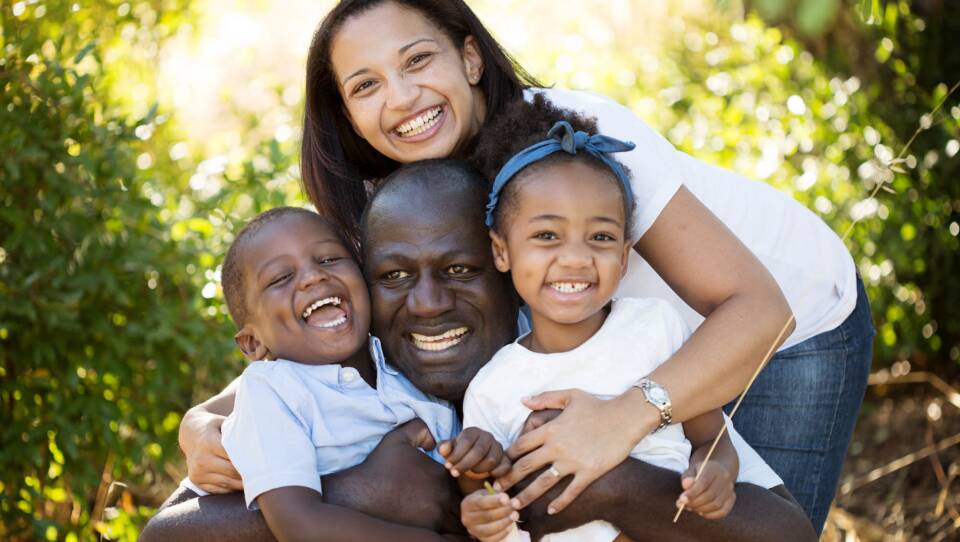Would you rather raise your kids in Europe or Africa?
That's the question that Carl Manlan faced. Carl, who's from the Ivory Coast, and his wife, Lelani, who's from South Africa, started their family in Geneva, Switzerland, where they were working at the time. They have two children, a daughter named Claire, born in May 2012, and a son named Liam, born in September 2014.
Geneva is a great place to raise kids, Carl says. "Lots of opportunities to stimulate kids outside of the home, playgrounds for kids. You don't really find that in most cities in Africa."
But he wanted to be a dad in Africa. So he and his family moved to Johannesburg and then Accra, where he works as a chief operating officer for a foundation. I spoke with Carl about his decision to be an African dad in Africa.
What is behind your decision?
Raising my two African children in Geneva has limitations. There are experiences they will not be able to have because of the geographic location.
Like what?
In Geneva she could see pictures and images from Africa but the visual and sensory experience of being here is something I cannot replace, even with social media. In Ghana, we see many people, kids, selling things in the street. It's something I saw growing up.
Does your daughter ask you why there are kids living on the streets?
She asked that question when we were driving her to school. Part of the explanation we gave her is that there are many children who cannot go to school, and they have to find a way to make a living.
What if she looks back and says, Gee, Dad, Geneva would have been a nicer place to live?
Maybe she would say, 'My life in Geneva would have been much better." But my answer would be, "It's a decision we made as parents. We think it is important for our children to understand the continent where their parents come from, to be part of the local culture, to hear the local languages, to see the challenges we have to resolve as a society."
Are you worried about health risks in Africa, where there are high rates of communicable diseases like malaria?
We focus on prevention — anti-mosquito spray and lotion on the body. And if something goes wrong we are fortunate to be able to access medical facilities.
Are you kind of the "new African dad"?
I wouldn't say the 'new African dad.' But there are fathers taking a different role in Africa.
Meaning what?
As fathers, we cannot just relay on the nanny. Raising children is a commitment. If parents delegate that responsibility they may not be helping society. Because having children is a commitment we've made to society, to make sure they become good citizens. And becoming a good citizen starts at home.
Any other advice for new dads?
Enjoy!
What was your dad like?
My father was a doctor and used to travel a lot. It took a while to make time to connect. With my kids, when I travel for work I make sure we have a conversation about my traveling before I go. I explain what I'm going to do. When I come back I bring a book from the country I've been to. And as much as possible it's 100 percent dedication to an activity for my children.
How did you connect with your dad?
In my teenage years in Abidjan, he'd wake me up in the early hours, around 5 in the morning, and we'd go for a walk. During these walks he would speak about being a professional and what it entails, how as a medical doctor he was committed to save people's lives and sometimes it means he cannot be home. Being able to walk with him when it was just the two of us is something I cherish a lot.
But he woke you up at 5! Teenagers love to sleep late, right?
I would look forward to the nudge in the early hours, that voice that troubled my sleep. I am grateful for those moments because it was our moment.
And he was very good at increasing the pace as a training in perseverance.
Going for an early walk became a habit. Even now I wake up early and I walk my walk. I'm not a runner but I walk my walk. It's a quiet moment, a special moment. It gets me ready for the day.
Do you plan to teach that custom to your kids?
Copyright 2017 NPR. To see more, visit http://www.npr.org/ .




